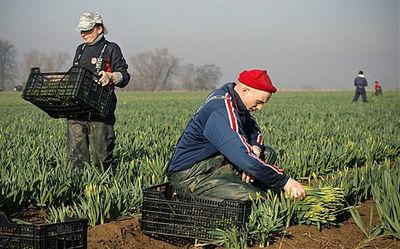Is it time to remit the high fees of remittance transfers?

It’s no secret that the European and Global market is generally slowing, and has been for some time. If the UK were to leave the EU, a knock-on effect is almost inevitable and several markets in the UK would be hindered. However, though the European market is abating, the remittance industry is evolving.
Recently, farmers have insisted that if the UK were to leave the EU, food would not be cheaper, and the leader for Britain’s farmers has expressed a desire for more migrant workers.
Which suggests it’s a myth that migrant workers ‘steal’ jobs from UK citizens. They bring a great deal of value to the UK, and European immigrants have paid more in taxes than they have received in benefits. In turn, this has helped to relieve the budgetary burden on UK-born workers and, financially, they have contributed a vast amount to the public services. That ‘vast amount’ equates to roughly £20billion from 2001-2011.
Migrant workers are also prepared to receive lower wages in jobs that Brits don’t necessarily want. In fact, immigrants who have arrived since 2000 are 43% less likely to claim state benefits or tax credits than natives. Hence immigrants are prepared to work, and are notoriously hard working. This positive contribution to the UK economy can often be overlooked at the expense of negative press and nationalist ideologies.

The fractured ecosystem, globally, and in Europe is concerning. Furthermore, no two countries are the same, thus there is a difference in lifestyles. Migrants working in the EU come from differing financial sectors where services differ from what they are familiar with.
As the migrant worker industry continues to populate, the remittance transfer volume also increases. Consumers and businesses send money around the world on a daily basis, however, fees can sit at an extortionate level. Numerous firms are exerting a stranglehold over the industry as they continue to charge huge fees on money sent to or from friends and family abroad. This garrotes an annual half a trillion-dollar lifeline for countries in a tough economic climate.
Fortunately for migrant workers, there are services such as TransferGo whom provide a means to send money home in a cost effective way. Both timely and straightforward, these services generally charge around £1 compared to banks, which charge an average transfer rate of £10.
Incredibly, a reduction on these remittance fees could save less economically developed countries and incredible £10billion per year, all while keeping the same standard of security that you’d find using a bank.
Remittances generate triple the total global aid budget and the value of transfers often overshadow the huge sectors of a country’s economy. Romania, Slovakia, Czech Republic, Poland, and Lithuania generate a lot of the remittance outflow whilst World Bank statistics from 2012 indicate that India received the most in remittance fees from the UK, totaling £4.27billion.
That’s a lot of money, and people are suffering from losing a lot of that through the high fees involved in remittance transfers. The stats prove taxes are more likely to be paid by migrants, so is there not an argument the fees could be lowered?


